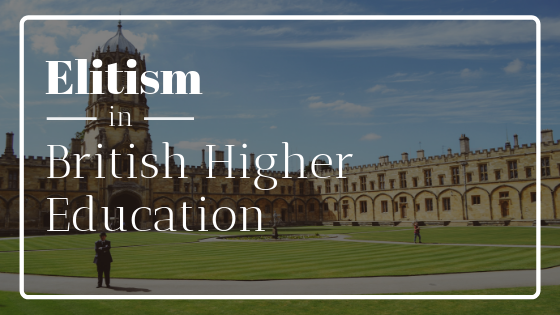An education system that isn’t built around a system of equity for everyone is doomed to just become a tool that widens the privilege gap, and that’s why some scholars are arguing that changes needed to be made to the United Kingdom’s institutes of higher education. The problem, they claim, is one of institutionalized elitism, and it’s one that manifests in a variety of different way.
The concern they see is an attitude among some towards privatization of universities. The result could be two tiers of schools: one that has the largest dispensation of resources and is only accessible to the wealthy and another that offers bargain basement education for more modest tuition. Standard rate tuition fees were approved in 1997, and they’ve had a significant effect on how much students have to pay for their education. Studies indicate that students are paying an additional £1.4bn per year.
There can be little doubt that the intent behind these top-up fees weren’t malicious. They were introduced to combat a very real problem in the realm of higher education: a lack of adequate pay for professors. But the lack of any sort of manifesto mandate for the terms has severely hindered the ability for top-up fees to resolve either problem.
Educators continue to be financially underserved, and students end up paying more and more for the very privilege of education. If the United Kingdom wants to stay competitive, they need an education system in place that will prepare their students for the new and rapidly developing challenges of the modern workforce, but the current method of doing business simply saddles students with excessive costs or blocks them out of a meaningful education entirely.
Some suggest that the best solution is to shoulder more of the costs to businesses. After all, private enterprises reap the best benefits of the education, since universities provide them with the staff they need to achieve their objectives. By this model, regulated contributions from businesses could bolster the salaries of educators while providing a lower barrier to entry for students.
It’s a model that would allow the students with the most promise and drive access to education rather than simply funneling the richest students into the workforce. Equal access is important, and it will only come when some don’t have to work harder for the basic privileges others take for granted.
